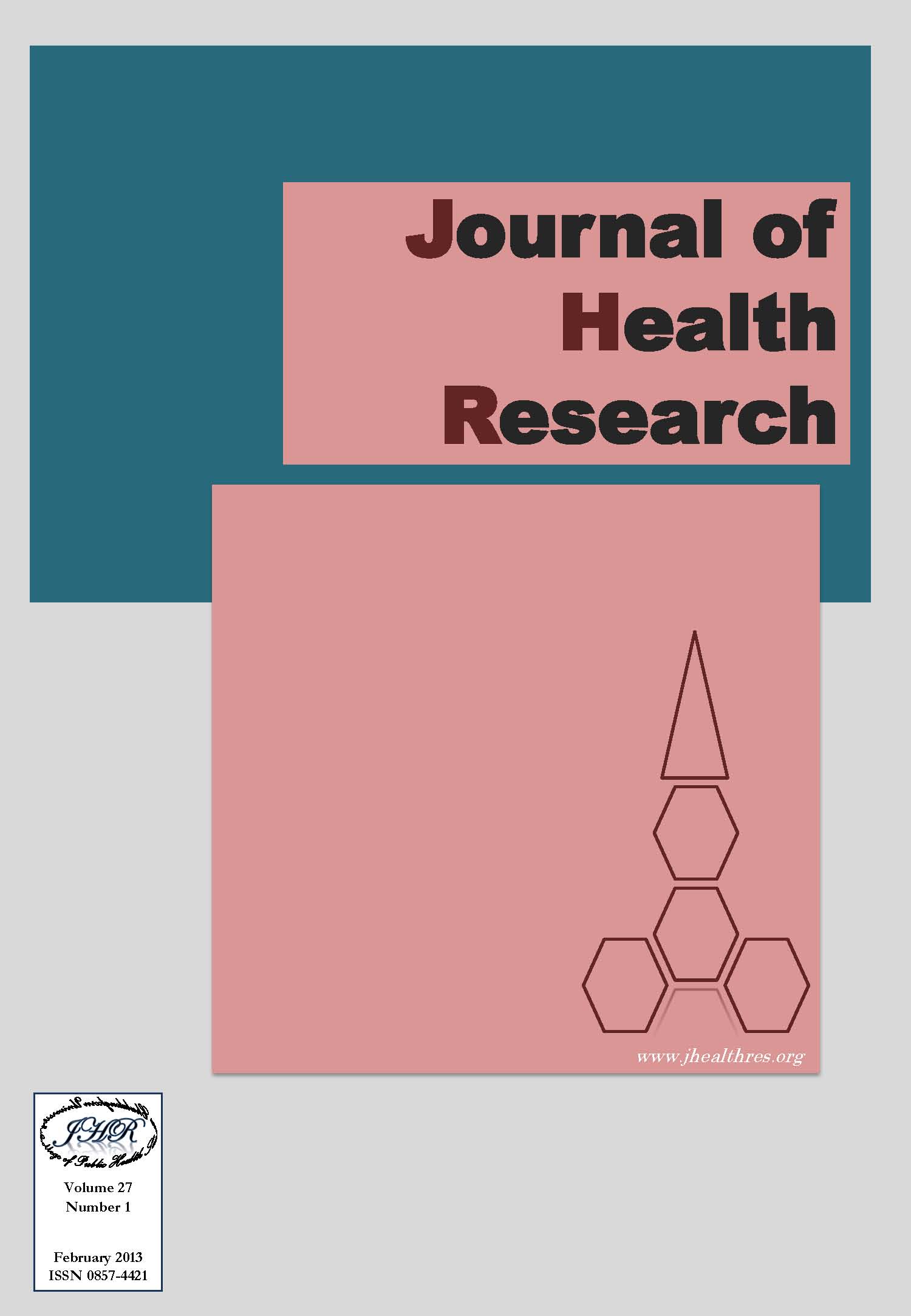Knowledge, Attitude, And Practice Towards Helmet Use Among Motorcycle Riders And Passengers In Ratchaburi Province, Thailand
Keywords:
Motorcycle, Knowledge, Attitude, Practice, Helmet use, Ratchaburi Province, ThailandAbstract
A cross-sectional study aimed to describe and to find factors associated with helmet use among motorcycle riders and passengers in Ratchaburi Province, Thailand. The study involved 430 people 18-59 years of age, motorcycle riders or passengers living in Ratchaburi Province for at least 6 months who twice a week used their helmets, most of them motorcycle riders. Accidental sampling was conducted at the study sites, by structured questionnaire, a large motorcycle use area, market car park or super market car park from the three markets in Mueang Ratchaburi: Robinson Store, Big C Supermarket, and Sree-Mueang Market. Descriptive statistics, Chi-square test, and Pearson’s Correlation were used to find an association between socio-demographic data, knowledge, and attitude in regards to helmet use practice. The study found that most of the respondents between age 40-59 (24.2%) were female (50.5%), 25.8% had finished secondary school, 53.5% were general wage earners, 68.1% had a personal average monthly income less than 10,000 baht. Most of respondents 87.2 % had a household income of 10,000-50,000 baht. About 66.5% of the samples used their helmet and the majority of the samples were motorcycle riders, 87.2% had experience in motorcycling for 1-20 years and 72.1% used the motorcycle on a daily base. Eighty-one point nine percent of the respondents used their own helmets with 40.1% of them using half-face helmet type. Seventy-six point four percent of the respondents used the helmet certified by Thai Industrial Standards Institute and 47.2% of them used their helmet for 3-5 years. The respondents did not experience any accidents during the past and those who faced one did not wear their helmet (94.7% and 60.9% respectively). The level of knowledge was moderate but the attitude toward helmet use was positive. The level of practice was divided into good and excellent levels. The result revealed that scores of knowledge and attitude were associated with the practice (p-value <0.05). Therefore, knowledge and attitude have an effect on practice. As public health significance, it can be used in planning and in problem solving regarding ignorance of or awareness on helmet use in motorcycling.







